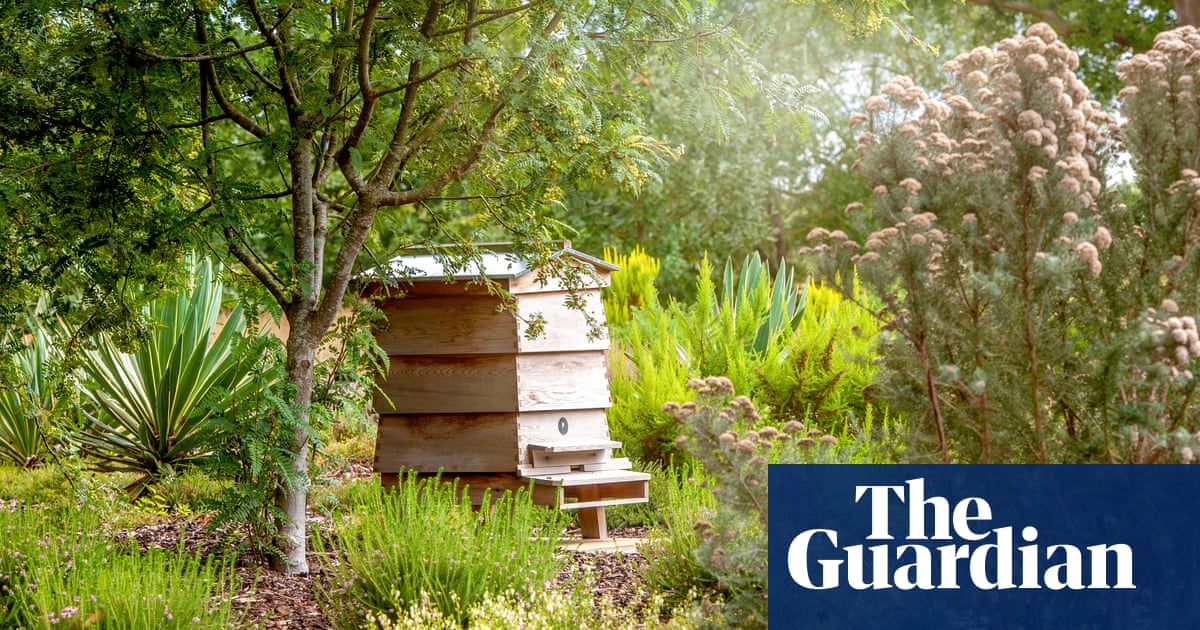Midden Witchby Fiona Benson (Jonathan Cape, £13)In her fourth collection Benson turns her fierce attention to the individuals hounded as witches. Her language is rich with “a broth of sweat” that brings middens – dunghills – and sweeter smells to life. Men’s power to conduct legalised persecution of women through accusations of sorcery is never far from the surface: “The church will pay a killing / for a witch.” These are poems cast as beautiful, intricate spells, reminding us there is more to life than we can hope to explain: “Perhaps we are all waiting / for the watcher in the dark, / attending to the glow / of that private thing, the soul.”
Dwellby Simon Armitage (Faber, £10)The poet laureate uses the conceit of where animals live, their setts, hives and warrens, to ruminate on how other species can thrive in the face of human domination. Armitage’s tone is delightful. A squirrel in her drey is living “a non-stop stop-motion life”. Rather beautifully, “every hare / is a broken heart / with legs”. Best of all are the Tripadvisor-style reviews in Insect Hotel: “Dark and dingy. Had to ask a glow-worm to show me to my room.” These are poems full of a winning, pleasurable charm.
Nature Matters: Vital Poems from the Global Majority, edited by Mona Arshi & Karen McCarthy Woolf (Faber, £14.99)Nature Matters considers nature poetry through the writing of poets of colour: “Hardly a radical idea, although … in the UK it is novel,” as Arshi and McCarthy Woolf say in their introduction. A capacious definition of “nature” means you’re as likely to read poems about slavery as the sea, a reminder that the environment is inherently political. There’s also plenty of straightforward beauty (such as in Vidyan Ravinthiran’s Autumn: “fallen yellow leaves now oftener / flare red. Embers. Blown-up chilli flakes”). As someone who has never felt at home with traditional nature poetry, this “new counterkingdom” (in Ishion Hutchinson’s phrase) of an anthology is a revelation.
Lodeby Gillian Allnutt (Bloodaxe, £12)Allnutt’s 10th collection is divided into three parts, tracing memories of her early life after the second world war, then through into lockdown, before reaching back into a pre-industrial landscape that reminds us “We are momentary, dust. // We are neither first nor last.” There are some indelible images in the poems, such as “the world is tracing-paper / thin … a secret / poste restante address”. More than this, Allnutt suggests there is a space beyond time that we can sometimes glimpse, and perhaps even gain comfort from, “involved in the recitation of our own / the told and the untold pain”.
Silk Workby Imogen Cassels (Prototype, £12.99)“God is an Italian; likes kitsch / and geometry.” A former Foyle young poet of the year, Cassels’s debut conjures a world where lemons glow with awe, and furniture blushes. Reminiscent of Holly Pester, her language fizzes with invention. Everything is off-kilter, teetering on the edge of nonsense, yet the poems resolve into an oblique clarity: “I hope something / exquisite happens to you: / a compound fracture, / ordinary sympathy”. There may be too much opacity and diffidence here for everyone’s tastes, but it’s a pleasure to see the familiar through Cassels’s eyes, as she renders it tender and absurd.
A History of Western Musicby August Kleinzahler (Carcanet, £12.99)Thirty-five years in the making, this collection brings together the veteran US poet’s numerous meditations on the power of music, and the effects it has on listeners, “still so transported / by the tapestry of sound – hypnotised”. Kleinzahler eavesdrops on assignations, secret nights out, even trips to the supermarket, showing how Elvis, Frank Sinatra, Whitney Houston and Mahler, among many others, are closer to guardian angels. John Coltrane “enjoys sitting with Aug and keeping him company, nothing odd about that”. These poems are glorious riffs on how to live, and live well.
Rishi Dastidar’s A Hobby of Mine is published by Broken Sleep.
